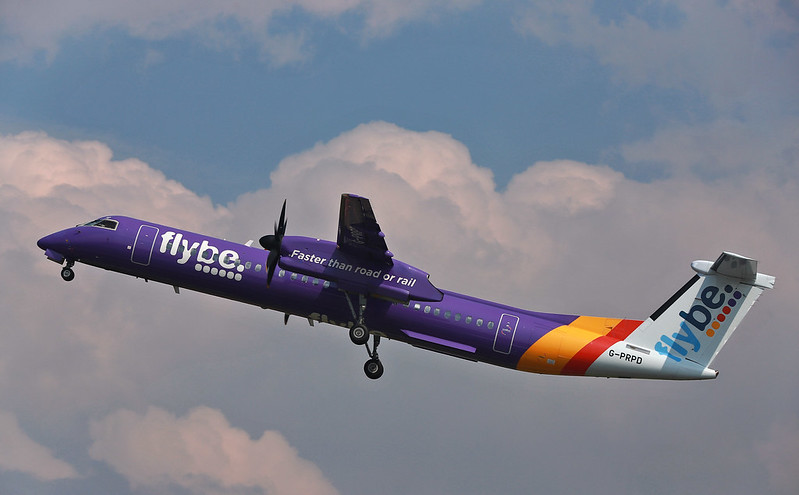Environmentalists are cross.
Should governments help money-losing companies stay in business? That’s the question that’s been thrown up by the troubles of the airline Flybe. The British government has just announced that it will restructure the airline’s £100 million tax debt - i.e. it will give the company longer to pay it off and/or tell it not to worry about some of it. In addition, because a large reason Flybe got into a financial mess was that it struggled to pay the £26 air passenger duty (a tax) that is currently levied on domestic return flights, the government is looking at scrapping the duty entirely.
One of the groups that are very against this decision are environmentalists. They point out that flying, as the most carbon-intensive form of transport, is a big contributor to climate change. Climate change in turn is linked to many things - from more intensive weather events to the extinction of animals and plants - that will harm the lives, livelihoods and property of many, many people around the globe.
Far from scrapping the air passenger duty, many environmentalists would like the government to up the tax. The idea is that making flying more expensive will make it less desirable for either passengers (if airlines put the extra cost into the ticket price) or the airline (if they pay for it themselves). People may therefore fly less and airlines may schedule less flights. Encouraging less flights between UK airports (as most of Flybe's are) is often a particular priority. After all, taking the same route via another form of transport, like a train or car, is likely to be less difficult, expensive or time consuming than, say, trying to get to New York from London without flying.
However, ‘less difficult, expensive or time consuming’ is not always the same thing as ‘easy, quick and cheap’. Flybe flies from a lot of regional airports that other carriers shun, in areas that don’t always have good public transport connections. Passengers who live in places like Essex or Newquay or Belfast say that they rely on Flybe to get them around the country and to big connecting airports for travels abroad and that without it, they might have to travel less.
That might be good for the environment, but many would consider it unfair that their opportunities to go on holiday or see family or go on work trips should be curtailed because they don’t happen to live in a big city (not least because a major reason people don’t live in those cities is that they find them too expensive). They may also consider it their government's job to ensure travel opportunities are as equal as possible for all UK residents. For them, it is right for the government to step in and save Flybe.
Read our explainer on: the role of the state.

